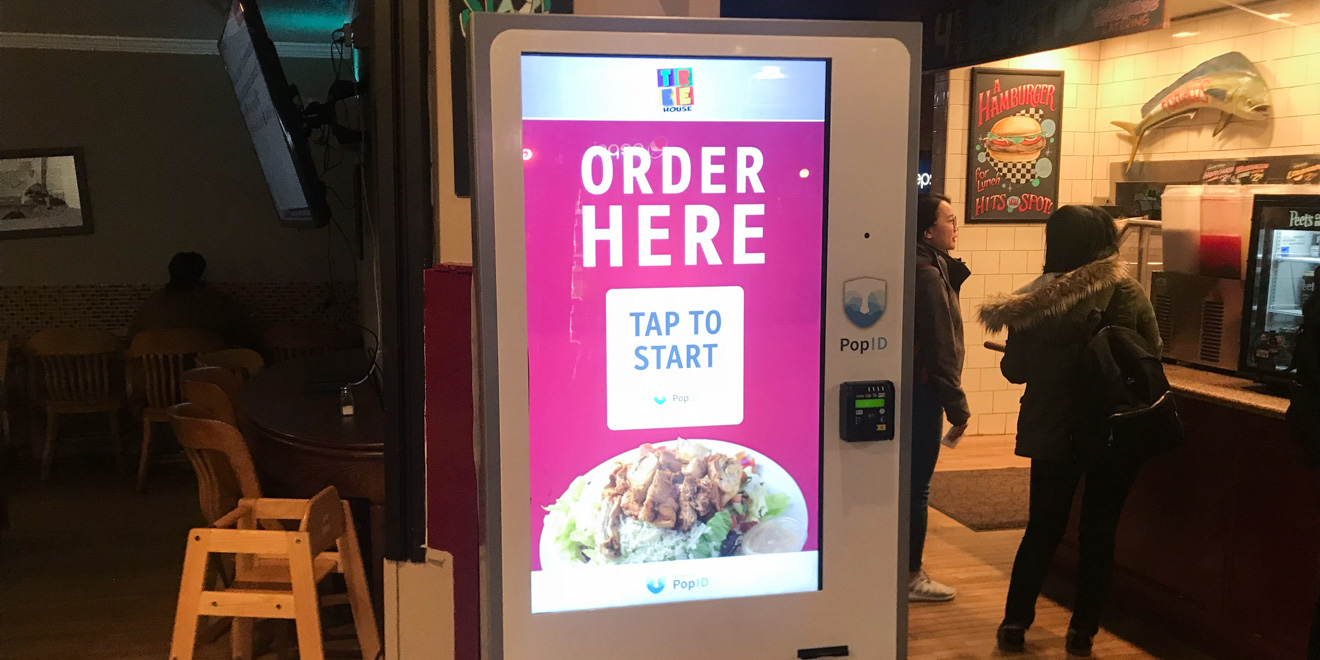Yale Goldberg ’17 was aware of the risk when he was approached by John Miller J.D. ’03 to help found a consumer service company that uses facial recognition to identify customers at camera-equipped kiosks.
“Essentially, he told me that he didn’t have any team, and he was going to look just to get some financing, and he’d like me to come on and help start the company,” Goldberg told The Daily.
PopID, founded in 2017, has now arrived at its first two college campuses: Stanford and the University of Southern California. It recently installed kiosks at Stanford eateries Treehouse and Ray’s Grill.
However, in the face of increased efficiency, customers have also raised concerns over privacy and information security.
PopID kiosks scan customers’ faces at participating restaurants using a technology called NeoFace, which is used primarily by law enforcement agencies to analyze faces automatically put in the database by surveillance cameras. After scanning their faces, PopID stores the data, and customers can use the kiosk to create an account, view previous orders and pay.
The company’s Stanford locations, installed at Ray’s Grill in the Graduate Community Center and at Treehouse on Feb. 26, are among the first of what the company hopes will be a wave of installations at colleges and universities across California, Colorado and Washington and Vancouver.
PopID operates kiosks in the independent restaurants Kitchens United, KoJuice and Saola. Its first kiosk opened in Pasadena in 2018 at CaliBurger, a fast food chain owned by the same tech-focused holding group of which PopID is a subsidiary.
But PopID is now choosing to focus specifically on college campuses, Goldberg said.
“We understand that college students, millennials, are early adopters of technology, particularly at schools like Stanford,” he added.
The Treehouse location is more than six feet tall and prominently located near the front of the store. Cole Sohn ’22 was a satisfied first-time user of the Treehouse kiosk, calling its use “quick and easy” and adding that he would be likely to use the kiosk again.
“I just used it because it seemed very futuristic,” he added.
The Ray’s Grill kiosk is smaller — about the size of a desktop computer — and located less conspicuously on a countertop.
While the Ray’s Grill and Treehouse kiosks have been installed since Jan. 12 and Feb. 26, respectively, Danial Shadmany ’21 and Olivia Flournoy ’21 said they had not used them before being approached by The Daily. Flournoy said she didn’t “really see the need” and raised privacy concerns with regard to the facial recognition ability.
“I wouldn’t really want my face to be saved,” she said.
According to the company’s website, PopID “does not keep or use images of its registered members.”
“Use of facial recognition technology for payment processing is expected to reduce identity and financial theft, increase transaction processing speed, and increase convenience for consumers by eliminating the need for physical and mobile wallets,” the website continues.
Ray’s Grill Manager Elizabeth Aguilar said the kiosks were installed to “try to give a better service to the customers,” though she said customers were still getting acquainted with the technology. She felt it had the greatest impact at lunchtime, when the restaurant is most crowded and the kiosks can send orders directly to the kitchen to maintain efficiency.
“Sometimes,” Aguilar said, “people don’t really have much time to be waiting in line.”
Contact Jean Yi at jeanyi ‘at’ stanford.edu.
